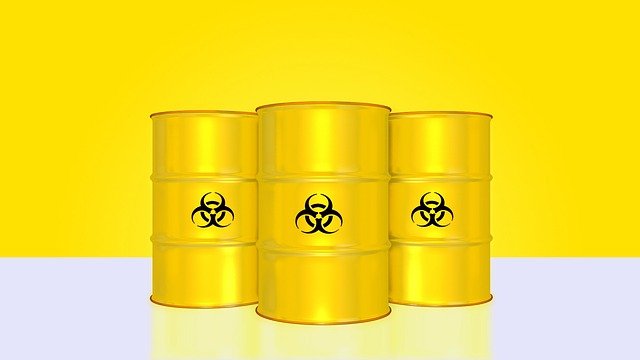-
The Nationally Controlled Goods List of items needing authorization from the Strategic Trade Management Office to import, export, transit, and transship is now out
-
The NCGL covers export, transit, and transshipment of goods to and from North Korea and Iran
-
STMO also issued Memorandum Circular No. 21-06, which implements guidelines for financing and brokering under the Strategic Trade Management Act
The Strategic Trade Management Committee has issued the Nationally Controlled Goods List (NCGL) of items that require Strategic Trade Management Office (STMO) authorization to import, export, transit, and transship.
The NCGL forms Annex 3 of the National Strategic Goods List (NSGL), which also includes military list (Annex 1) and dual-use list (Annex 2). Annexes 1 and 2 were released much earlier.
NCGL is a list of nationally controlled goods, which are strategic goods placed under unilateral controls for reasons of national security, foreign policy, anti-terrorism, crime control, and public safety.
Strategic goods refer to both military goods (for example, firearms) and dual-use goods. As the name suggests, dual-use goods not only have a civilian use; they can also be used to produce weapons of mass destruction, ballistic missiles or conventional military goods.
NCGL implements sanctioned items for export, import, transit and transshipment to and from specific countries identified by the United Nations Security Council (UNSC) as set out in the lists of UNSC documents.
NCGL currently covers export, transit, and transshipment of goods to and from North Korea and Iran.
Prohibited items for export to North Korea under the NCGL include hot cells; polymeric substances; metals, compounds, propellants and constituent chemicals for propellants; toxic chemicals, toxic chemical agent precursors, and chemicals for decontamination of chemical warfare agents.
Examples of prohibited items for import from North Korea include manufacturing machine and equipment; all flash X-ray machines and parts or components of pulsed power systems designed therefrom; cameras; metal and metal ores; and wood and articles of wood.
Prohibited items for import from Iran are also listed in Annex 1 of the NSGL, while prohibited exports are set out in the lists of UNSCR 2231 and its subsequent resolutions which could contribute to Iran’s nuclear-related program.
All export, transit, transshipment, and import of items in the NCGL that fall under exemption provisions will require STMO authorization prior to actual export, transit, transshipment, and import.
This is pursuant to the Strategic Trade Management Act (STMA), or Republic Act No. 10697 (An Act Preventing the Proliferation of Weapons of Mass Destruction [WMD] by Managing the Trade in Strategic Goods, the Provision of Related Service, and for Other Purposes).
RA 10697 was signed in 2016 to comply with United Nations Security Council Resolution No. 1540. The UN resolution “imposes binding obligations on all states to adopt legislation to prevent the proliferation of nuclear, chemical and biological weapons, and their means of delivery, and establish appropriate domestic controls over related materials to prevent their illicit trafficking.”
RA 10697’s implementing rules and regulations was signed only in September 2018.
Under the law, traders, transport companies, and logistics service providers moving strategic goods need to be registered and licensed with the STMO, an office attached to the Department of Trade and Industry that establishes the systems for managing the trade of strategic goods pursuant to STMA.
READ: Transporting strategic goods in PH to require DTI registration, license
The STMA regulates the export, import, transit and transshipment, re-export and reassignment of strategic goods, software and technology and the provision of related services in order to prevent WMD from proliferating.
MC 21-06: Guide for financing, brokering under STMA
Relatedly, STMO has also issued Memorandum Circular (MC) No. 21-06, which implements the guidelines for financing and brokering under the STMA.
Under MC 21-06, any natural or juridical person operating within the Philippines or any Filipino person wherever located should apply for an individual authorization from the STMO to be able to engage in brokering activities or financing activities relating to nationally controlled goods.
Brokering refers to activities such as negotiating or arranging transactions that involve the shipment of strategic goods from a foreign country to any other foreign country, or selling or buying with the intent to move strategic goods that are in a broker’s possession or control from a foreign country to any other foreign country.
It also covers any activity that include the financing, transportation, freight forwarding or taking any other action that facilitates the manufacture, export, or import of a strategic good, irrespective of its origin and which may include preliminary discussions, introductory meetings, and other very basic sales activities by intermediaries.
Financing, on the other hand, refers to making available or providing funds to facilitate the movement/flow of strategic goods and/or related service if this contributes to WMD or their means of delivery; or military goods if destined for a destination subject to a UN Security Council embargo or prohibited/restricted end-users.
An individual authorization, meanwhile, is one of the three types of authorization under STMA and is given to one natural/juridical person with respect to one end-user covering one or more strategic goods.
Any natural or juridical person operating within the Philippines or any Filipino person, wherever located, is prohibited from engaging in brokering and financing activities, if the parties involved in the transaction/s are any of the following:
- a designated person under UNSC Resolution (UNSCR) 1718 and its subsequent resolutions;
- a designated person under UNSCR 2231 and its subsequent resolutions;
- any entity owned or controlled by a designated person;
- any individual or entity that acts on behalf of or under the direction of a designated person; or
- any person in, or who is a national of, North Korea
Except for documentary requirements, the application of individual authorization for goods under Annex III will be the same process provided under STMO’s MC 20-26, which provides the guidelines on export authorization.
Any violation of MC 21-06 will be considered unlawful under Section 19 of the STMA, and will be penalized accordingly. – Roumina Pablo





